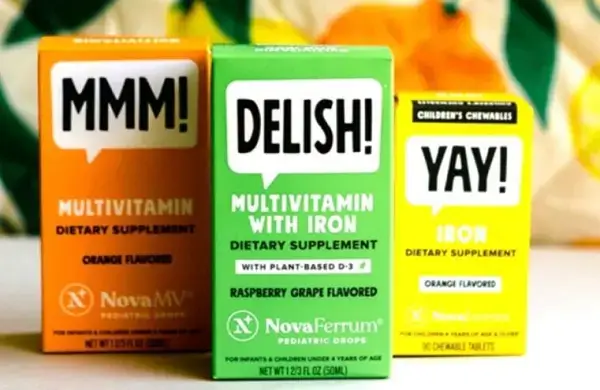
Do you experience extreme fatigue, weakness, and shortness of breath? Have you tested your iron profile yet? You can have iron deficiency anemia. It is the most common type of anemia in women. Under this condition, a woman’s blood lacks the required amount of red blood cells. These cells are responsible for carrying oxygen in the body.
Women with iron deficiency anemia do not have sufficient iron, which hinders hemoglobin function. That is why people with anemia experience staying tired and short of breath. With correct iron supplementation, the situation can become better.
Read more to know the effects of iron deficiency and how iron capsules can help women’s condition.
How Iron Deficiency Can Affect You?
Iron deficiency anemia may start with mild symptoms and worsen over time. But, the mild symptoms can be so mild they usually go unnoticed. You can experience the following signs and symptoms if the condition intensifies:
- Excess fatigue and tiredness
- Shortness of breath or palpitation
- Pale skin
- Chest pain, headache
- Brittle nails, cold feet, and hands
- Unusual cravings for dirt, ice, or other non-nutritive substances
- Poor appetite or soreness of the tongue
If you develop any signs and symptoms of anemia that don’t go away with time, you should see a doctor.
Why You Could Have Iron Deficiency?
A doctor draws blood to test for iron deficiency. If a woman’s blood levels are between 12 to 15 decilitres, then you are not iron deficient. If anything is lower than 12 deciliter, you can have an iron deficiency. The following can be a reason behind your condition:
- Underlying digestive issues: If you have untreated digestive issues like irritable bowel syndrome or Crohn’s disease, your body’s capabilities of absorbing nutrients diminish. This way, your body can not absorb the adequate quantity of iron in the body, triggering a deficiency.
- You are pregnant: If you are pregnant, your body needs double the amount of iron to support your baby’s growth and development. If you don’t get enough iron, you can get iron deficiency anemia. You should heed the advice of your doctor and get the best iron capsules if you are expecting a baby. Consulting with a healthcare professional to assess individual needs and developing a comprehensive approach to fertility, including a balanced diet and lifestyle considerations, is crucial for those on the journey to parenthood.
- You are not consuming a balanced diet: Not eating a balanced diet can cause iron deficiency in your body. Specifically, if you are a vegetarian, it comes to be difficult for your body to absorb iron as contrasted to a meaty diet.
- You might have a genetic form of anemia: Hereditary anemia, such as sickle-cell and thalassemia, may require long-term medical management.
- You are menstruating: Women who menstruate may become slightly anemic due to monthly blood loss, especially with heavier periods.
Do Iron Supplements Help in Conceiving a Child?
While iron supplements are typically advised to address shortages and support general health, the inquiry of whether they especially help in developing a youngster is intricate and complex.
Iron deficiency, known as anemia, can have adverse effects on reproductive health. In women, it might cause irregular menstrual cycles and ovulatory dysfunction, influencing fertility. Therefore, addressing iron deficiency through supplementation may indirectly contribute to an improved chance of conception. Nonetheless, it is necessary to note that the relationship in between iron and fertility is not straight or guaranteed.
Research study suggests that correcting iron deficiency may control menstrual cycles, making them more predictable and boosting the probability of effective conception. In addition, adequate iron levels are vital during pregnancy to prevent complications such as preterm birth and reduced birth weight. Making sure ideal iron status prior to fertilization is crucial for maternal and fetal wellness. Some doctors recommend the best iron capsules for women expecting a baby.
It’s crucial to approach iron supplementation with caution and under the guidance of a healthcare professional. Excessive iron intake can have adverse effects and may lead to toxicity. Therefore, determining the appropriate dosage based on individual needs is vital.
While iron is undoubtedly crucial for overall health and reproductive well-being, conception is a complex process. Lifestyle, age, hormonal balance, and overall health contribute to fertility. Iron supplementation alone cannot guarantee pregnancy success.
For individuals intending to develop, keeping a balanced diet rich in iron, along with various other essential nutrients, is recommended. Foods high in iron include lean meats, legumes, dark leafy greens, and strengthened grains. A versatile diet not only advertises basic health but also sustains reproductive features.
The Takeaway
Iron supplements may indirectly aid in conception by addressing underlying deficiencies and promoting overall reproductive health. However, they are not a standalone solution, and other factors must be considered.
Dealing with iron deficiency in women needs a complex method, including dietary adjustments, supplementation when needed, and addressing any kind of underlying reasons. Regular health check-ups, specifically for women in their reproductive years, can aid in identifying iron deficiency early and avoid the significant effects related to poor iron levels.